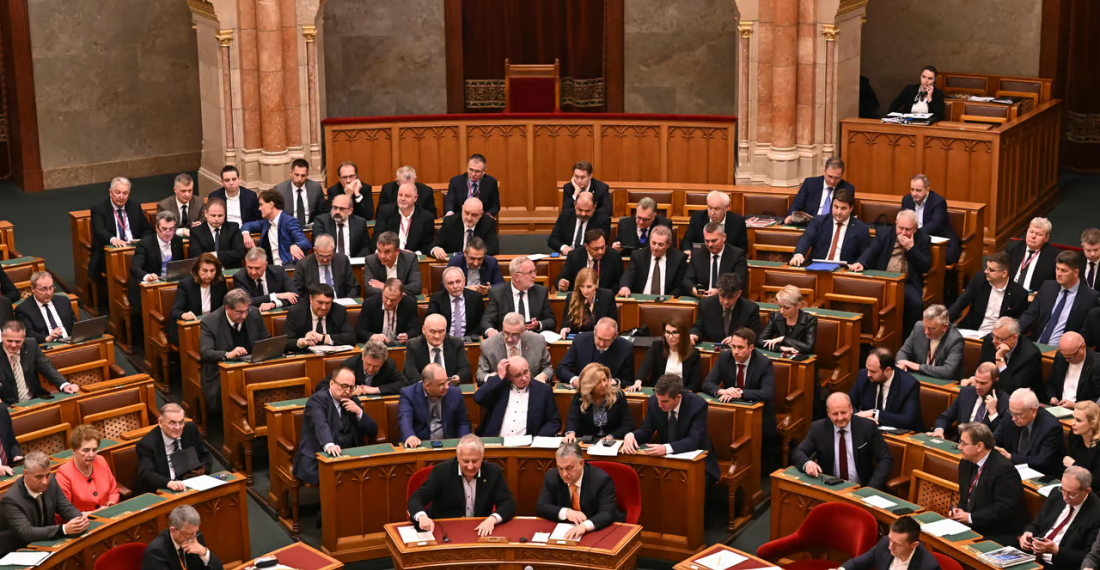Over 10 months after Finland applied to join the NATO military alliance, the Hungarian Parliament has ratified Finland's application to the currently 30-member bloc in a vote on Monday (27 March).
The vote was passed by 182 votes for and only 6 votes against. In order to become a NATO member, an applicant country must be approved by every member state individually, and following Hungary's approval yesterday only one country remains, Turkey.
Turkey's approval of Finland's application to NATO is indeed expected soon as the country's parliamentary committee on foreign affairs approved their application last week. A parliamentary vote on accession is expected before the country's presidential elections on 14 May.
Delays in Budapest and Ankara over Finland and Sweden NATO membership
Yesterday's vote comes after months of delay in both Budapest and Ankara over Finland and Sweden's NATO membership prospects.
While Hungarian officials had spent months insisting that they simply busy with other business, at the end of last month the Hungarian Prime Minister Viktor Orbán threatened to throw a spanner in the works over Finland and Sweden's history of open criticism of rule-of-law in Hungary.
Orbán accused them of "shamelessly spreading lies about Hungary", and argued that some in his party were questioning the wisdom of admitting the Nordic neighbours.
Although Finland has moved closer to membership, Sweden's membership of the military alliance is still stalled, however, with Budapest and Ankara both delaying a vote on whether to admit Sweden.
In Budapest, Balázs Orbán, the Hungarian prime minister’s political director, who is of no relation to the PM Viktor Orbán, tweeted on Sunday (26 March) insisting that Hungary does indeed support Stockholm's NATO application, but said that it is "up to the Swedes to make sure that Hungarian MPs’ concerns are addressed".
In Ankara, Turkey's disputes with Sweden over a number of issues continue to frustrate accession, but, speaking earlier in March, the Swedish Foreign Minister Tobias Billström said they remained hopeful.
He said, "we bring well-equipped and well-trained forces into NATO, and we will be adding to the security - and to the security of northern Europe - in a way which is unprecedented."






